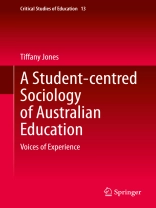This book is based on a comparative study from 2018, of four different approaches to education, according to 2, 500 Australians’ experiences of them, on a range of topics. It shows that whilst the critical approach has strong research-based support across the board, sometimes a liberal, conservative or post-modern approach may have some merit for certain outcomes. This is a book about challenging our biases and calling on ourselves to aim higher for education, than what our own pre-conceived ideas might allow.
What and who is valued in education, and the social roles and identity messages learned, differ wildly from school to school. Education is most impacted by the orientation of education dominant in that context – whether conservative, liberal, critical or post-modern. These terms are often used with little practical data on the real-life schooling they entail. Who learns what in which approach? Who learns best with which approach, on which topic and why? This book providesthis previously missing information. It offers holistic, detailed descriptions of conservative, liberal, critical and post-modern approaches to education broadly. It provides statistics and stories from real students on how the four approaches work practically in schools in relation to: age, gender, sexuality, social class, race, news-media, popular culture and technology. Chapters offer background information to the four perspectives, data from student participants, tutorial questions and activities, and suggestions for further reading.İçerik tablosu
1. Introducing Sociology of Education.- 2. Designing a Comparative Sociological Education Study.- 3. Basic Demographics for Voices of Experience Participants.- 4. Paradigm – Australia’s Largely Liberal & Conservative Schools.- 5. Age – Australia’s Staging of Aging Via Spiral Curricula.- 6. Sex & Gender – Australian Schools Shout Sex & Whisper Gender.- 7. Sexuality – Australian Schools’ Sexuality Wars.- 8. Social Class – Australian Schools Won’t Merit the Need.- 9. Race – Australia’s Critical Racial & Cultural Curricula.- 10. News Media – Australian Schools on Fake News & Media Objectivity.- 11. Popular Culture – Teaching Traditional Canons vs. Playing with Postmodern Pastiche.- 12. Technology – Australia’s Phone Bans & Educational Use.- 13. Conclusion & Recommendations.
Yazar hakkında
A/Prof Tiffany Jones (BCA, BEd-Hons1, Ph D) is a sociologist who researches social issues in education, education policy, health and social policy, and legislative change. Key projects have been supported by organisations including the Australian Research Council, UNESCO and beyondblue for example. Her many peer-reviewed books include the recent book ‘Improving Services for Transgender and Gender Variant Youth’ (2019). Dr Jones liaises and constructs technical, policy and data reports with UNESCO and other UN bodies, including the recent report ‘Bringing it Out in the Open: Monitoring school violence based on sexual orientation, gender identity or gender expression in national and international surveys’ (2019). She also works with various international and local/ state government and non-government organisations, on policy development around LGBTIQ+ issues; one of her recent projects is a CIHR funded collaboration across Canada, Belgium and the UK towards supporting improved health care transitions for youth with intersex variations. She sits on the editorial board of the peer-reviewed academic journals LGBT Health and LGBT Youth, and also edits a combination of scholarly and creative contributions in Bent Street (including the new 2018 edition). She is an active peer-reviewer for various education, health and sociology journals. She has received a range of awards including various postgraduate scholarships, the Griffith University Medal, the Association for Women Educators Award for Girls’ Education, the ATLAS International Institute for Qualitative Methodology Highly Commended Dissertation Award and the 2018 AARE Raewyn Connell Award for leadership in gender and sexuality education research.












